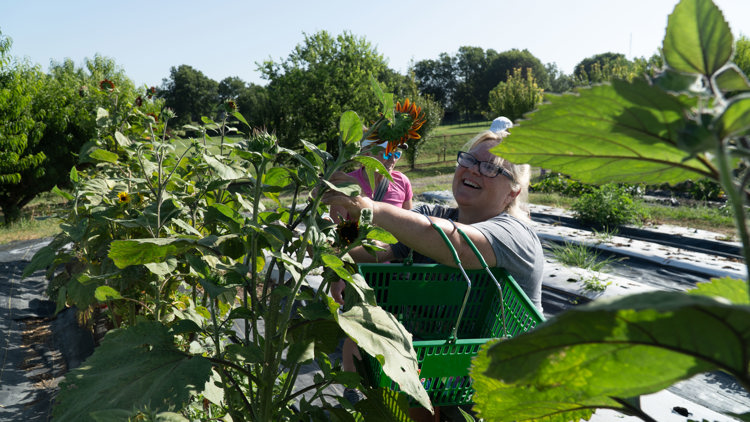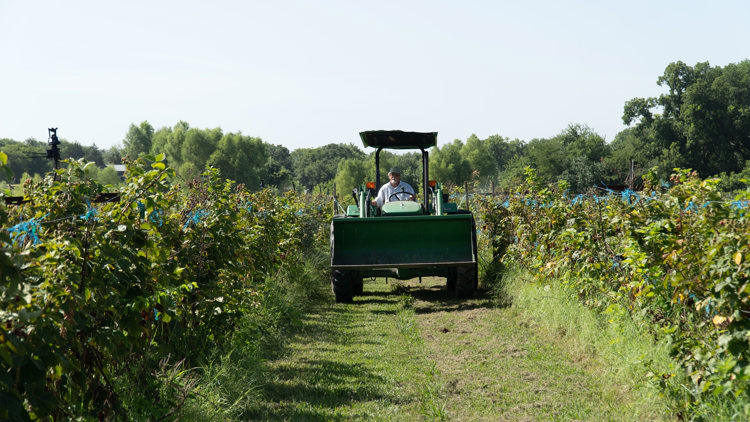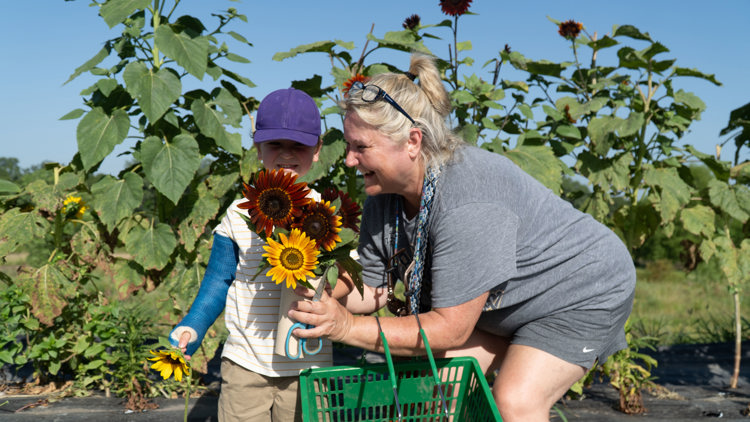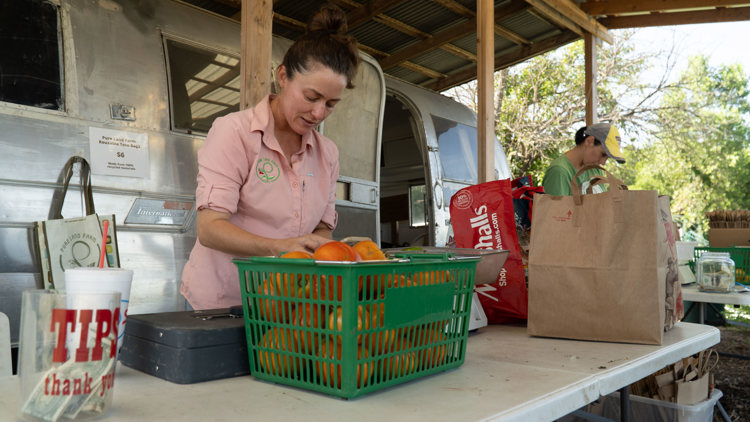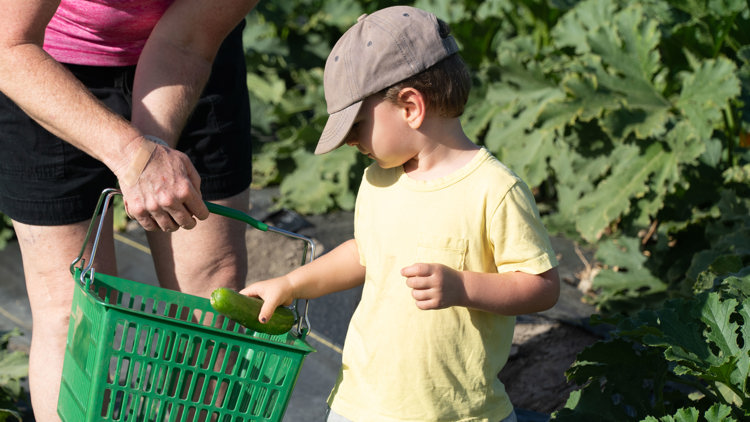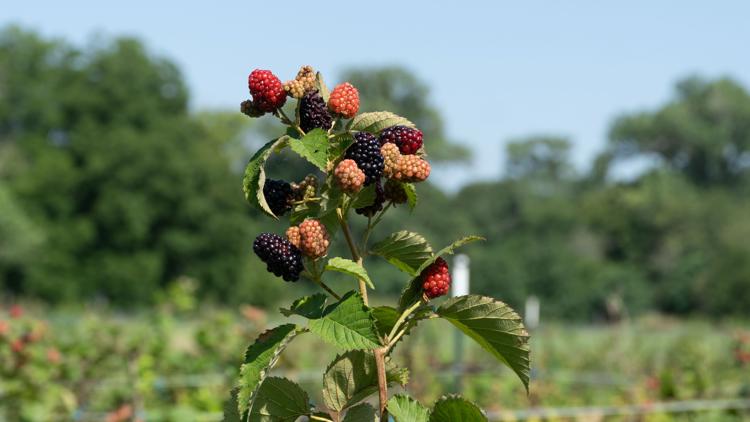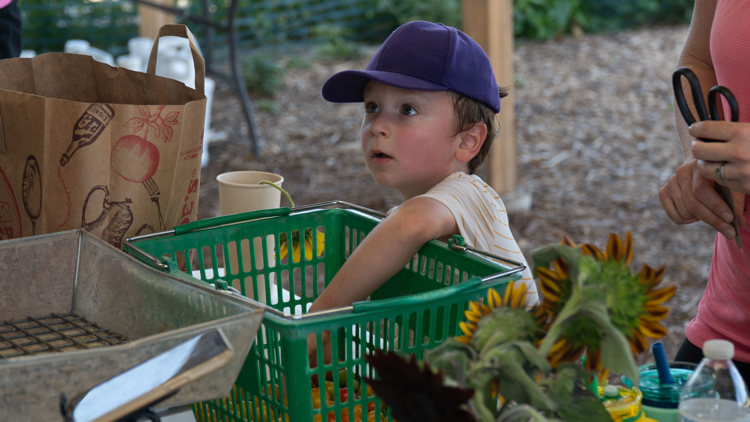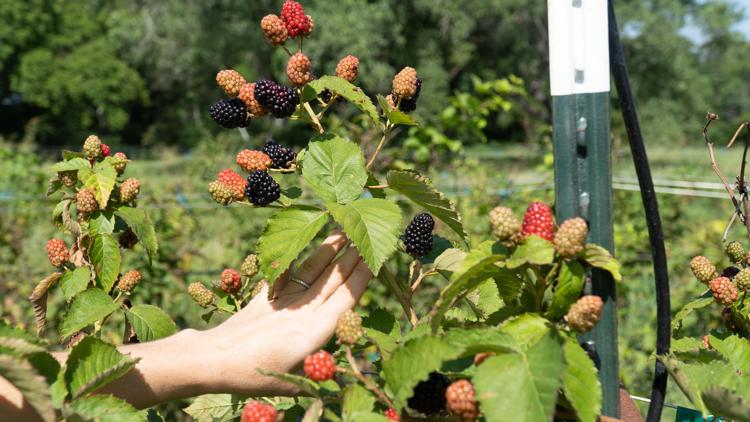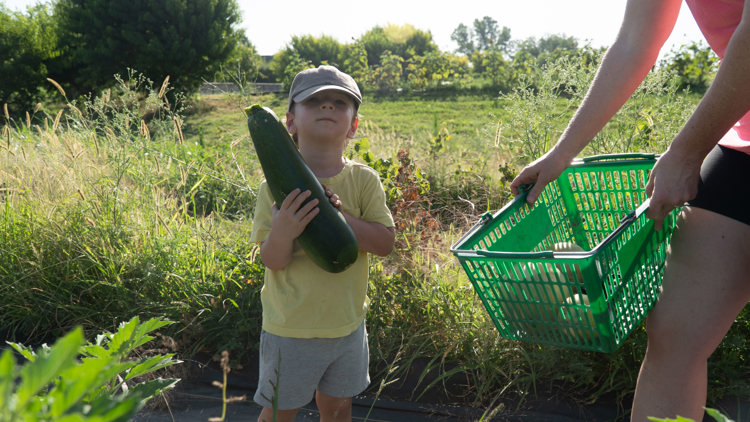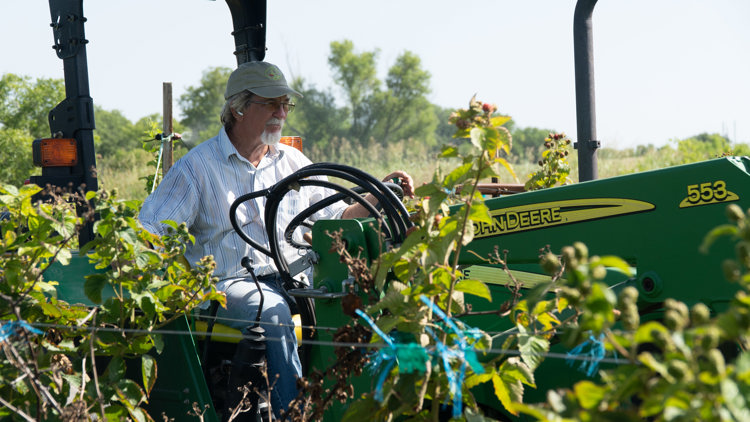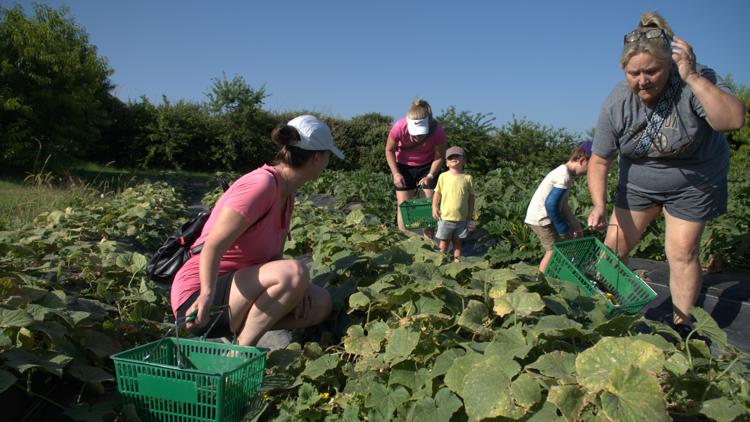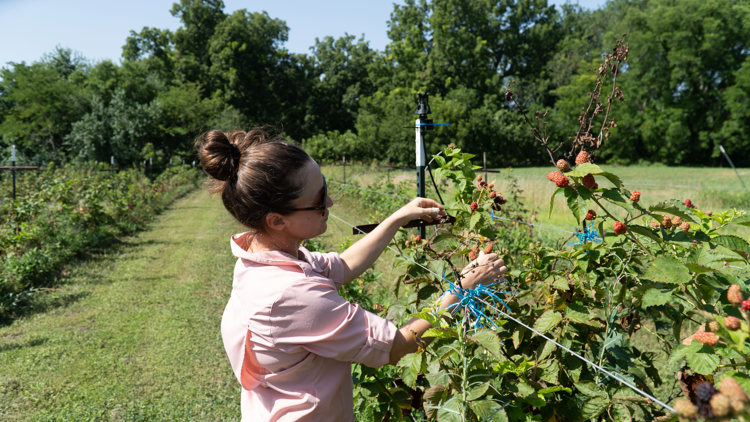Pure Land Farm, and the owners and customers behind the small business, are helping sow the seeds of the increasing trend in North Texas.
MCKINNEY, Texas — The summer harvesting season may be over at Pure Land Farm in McKinney, but the work never stops for owners Jack and Megan Neubauer.
It’s early July, and Jack is spraying his blackberry crop with hydrogen peroxide at the pick-your-own-produce farm. The plants’ leaves tend to grow fungus if they’re not treated like this — and, as one of the farm’s biggest customer draws, the blackberries must look as good as they taste.
As the father-daughter duo braves the midday heat, they do what they can to ensure a plentiful crop for next year’s customers, who are willing to do their own manual labor for the organic produce.
Pure Land Farm, and the owners and customers at the center of the pick-your-own-produce operation, are helping sow the seeds of an increasing agritourism trend in North Texas.
“Agritourists are the kind of people who are willing to come out and sweat because they value organic, local fruits and vegetables and farmers,” Megan said.

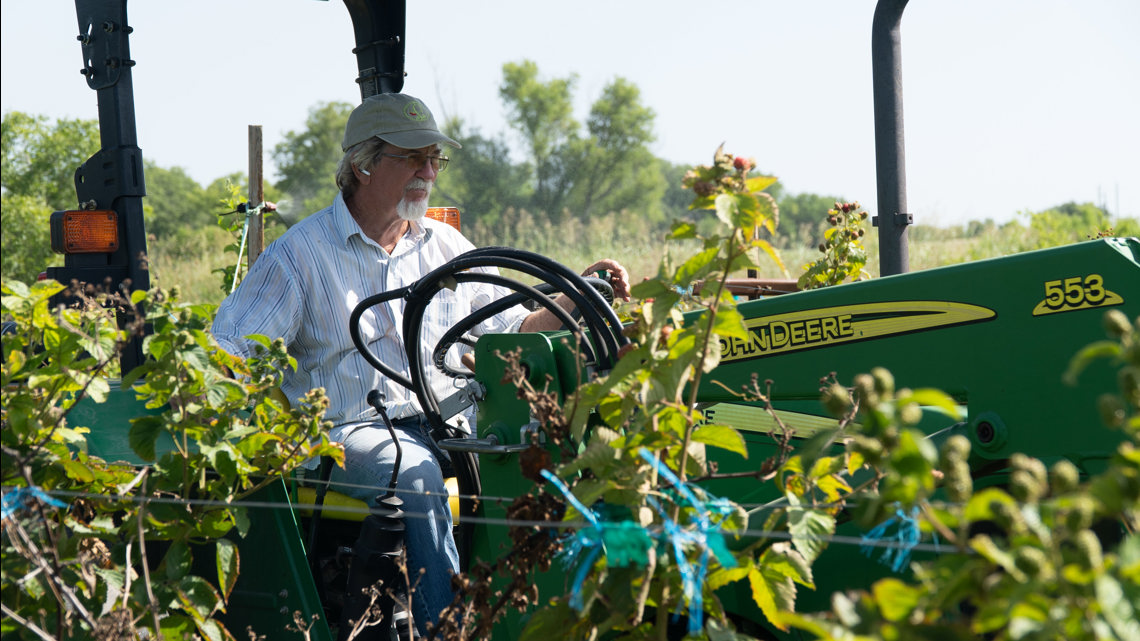
Agritourism, simply put, is the intersection between agriculture and tourism. If a business brings visitors to an agricultural production or nature site for an experience, it counts as agritourism, according to Connor Clark, an assistant professor at Texas A&M AgriLife.
Beyond pick-your-own-produce farms, the industry includes everything from pumpkin patches to wildlife safaris to Christmas tree farms.
The worldwide agritourism market was valued at $33.8 billion in 2022. A projection by Allied Market Research expects it to reach $111.1 billion by 2032.
For Jack and Megan, agritourism means a way to profit from their farm.
Pure Land Farm’s roots were planted in 2012, a year after Jack purchased the land following his retirement from a career in petroleum engineering. At first, the Neubauers started selling their farm’s produce — zucchinis, onions, peppers, garlic and more — at area farmers markets. According to Megan, these markets were an easy place to build a following, but their sales weren’t profitable enough to sustain the farm on their own.
In 2017, Pure Land Farm added berries to their harvest with the intent of switching their business to a pick-your-own-produce model.
“Pick-your-own has been such a game-changer because it has eliminated so much of the backside of the labor for us,” Megan said. “We’re able to repurpose all of the time that we’ve saved picking, sorting, bagging and all of the stuff that people don’t realize is days of work before a farmers market.”

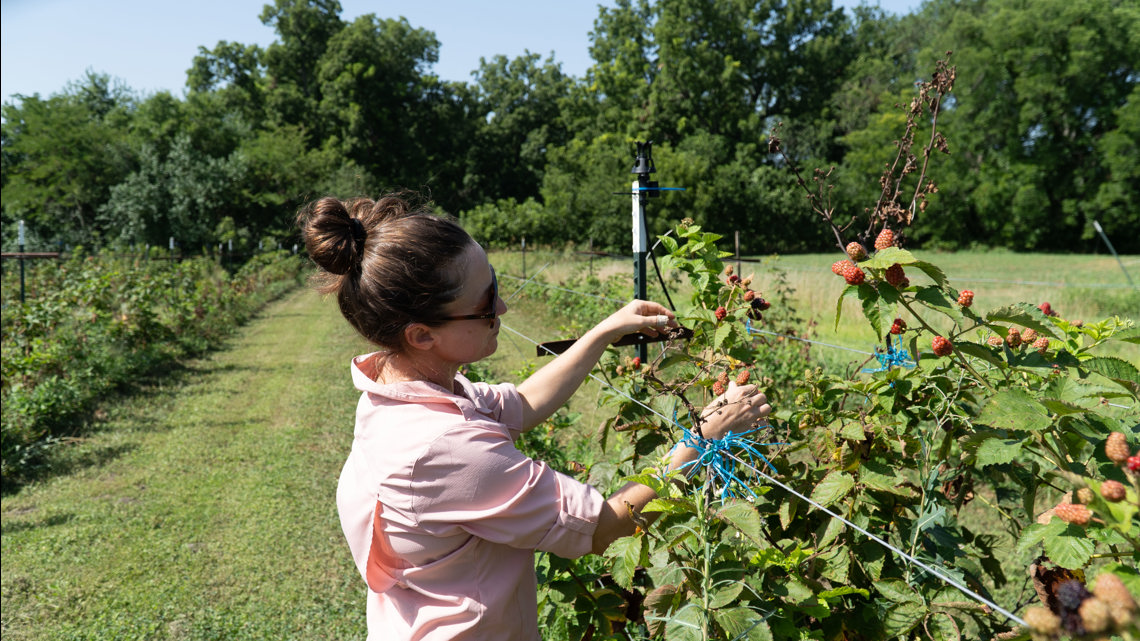
Agritourism helps small businesses like ranches and farms diversify their income in a changing agriculture industry, Clark explained.
Any number of challenges — fluctuating market prices, climate change, labor costs and so on — can impact the livelihood of farmers.
“Whether it’s horseback-riding or a birding tour or a you-pick farm, being able to incorporate that income into an agricultural operation can not only help and make a difference, but even be a massively profitable model,” Clark said.
For the Alford Family Farm in Emory, they’ve been taking the changes in stride. The family-run operation began 12 years ago when husband and wife Tom and Patty Alford bought the land.
While their main crop is berries in the spring and summer, Tom and Patty’s son Michael Alford said the farm’s income is supplemented during the offseason by pecan harvests and bonsai tree profits.
Much like the Neubauers, the Alfords’ business was initially reliant on farmers market sales and has since shifted to incorporate a pick-your-own model. Unlike the Neubauers, the Affords do still regularly sell some produce at the Denton Farmers Market.

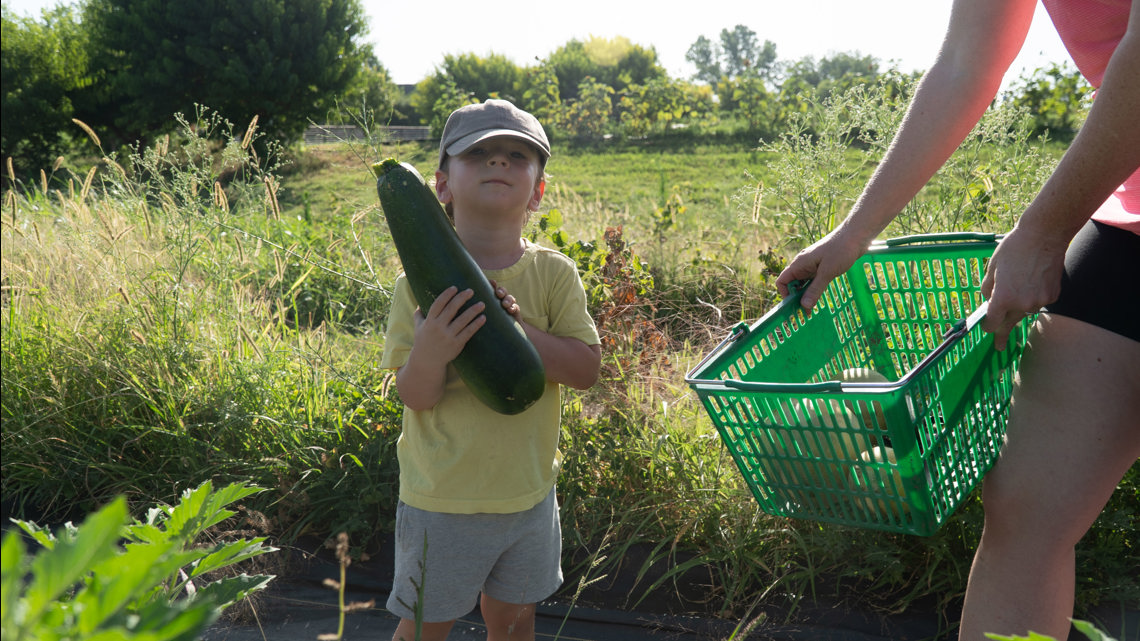
Their business model transition happened during the pandemic when Michael said their pick-your-own-berries business “exploded” once the Alfords — and, more important, their customers — realized that picking fruits on a five-acre field made was a perfect social distancing activity.
“The farmers markets had more rules, and it was kind of hard to find people to run it with all of the government subsidies that everyone was getting,” Michael said. “It was also harder to get customers to the farmers markets. But we had people out here looking to get out of their house.”
Clark said this is part of a consumer trend seen all across the agritourism industry since the pandemic. People who could no longer travel long distances for tourist experiences began looking in their own backyards.
It’s also represents a cultural shift in interest, he said.
“People like getting out, connecting with nature and connecting with more traditional ways of life,” Clark said. “It really sparked something interesting in people, and that trend seems to be going strong. Even with the COVID-19 pandemic over, this is absolutely projected to keep growing.”

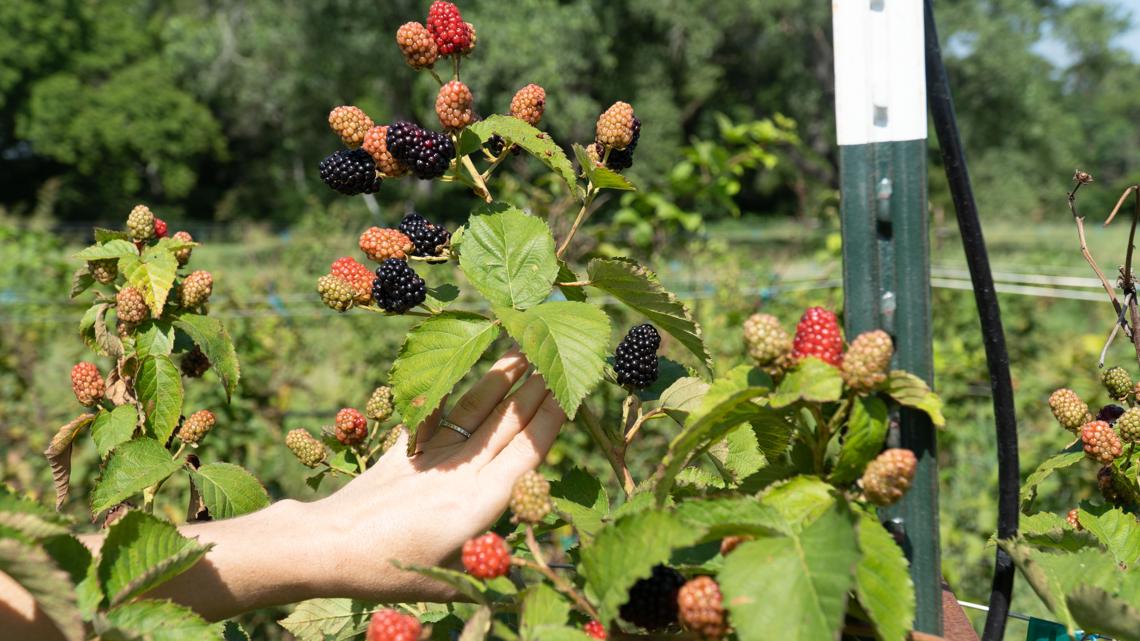
Even before COVID-19, farm agritourism revenue more than tripled from 2007 to 2012, according to data from the Census of Agriculture.
This sharp growth doesn’t just mean a chance to increase the profits and popularity for the team at Pure Land Farm. It’s also a chance, the Neubauers said, to connect their community with their food.
“The real benefits are in bringing people out, letting them get their hands dirty, letting them feel what it’s like for people who are growing their food,” Megan said. “The more people we can connect back to actual agriculture by providing the space for them to have this experience, it’s just going to spread.”
Pure Land Farm in McKinney promotes growing agritourism trend in North Texas with pick-your-own-produce model

